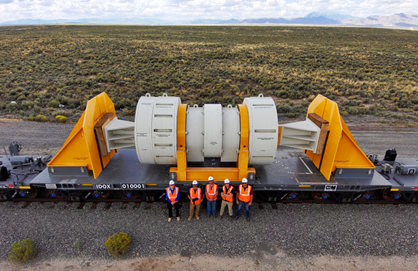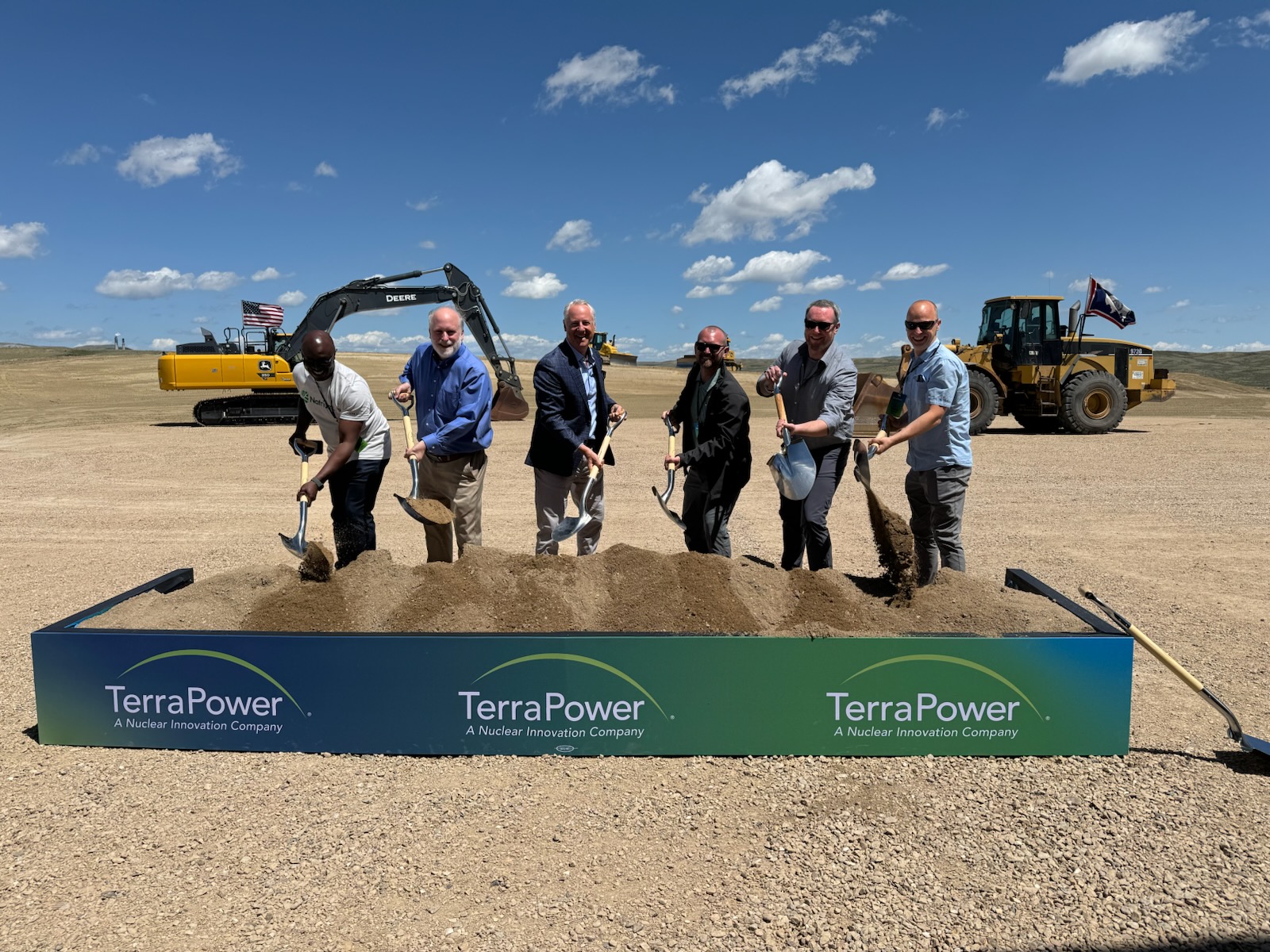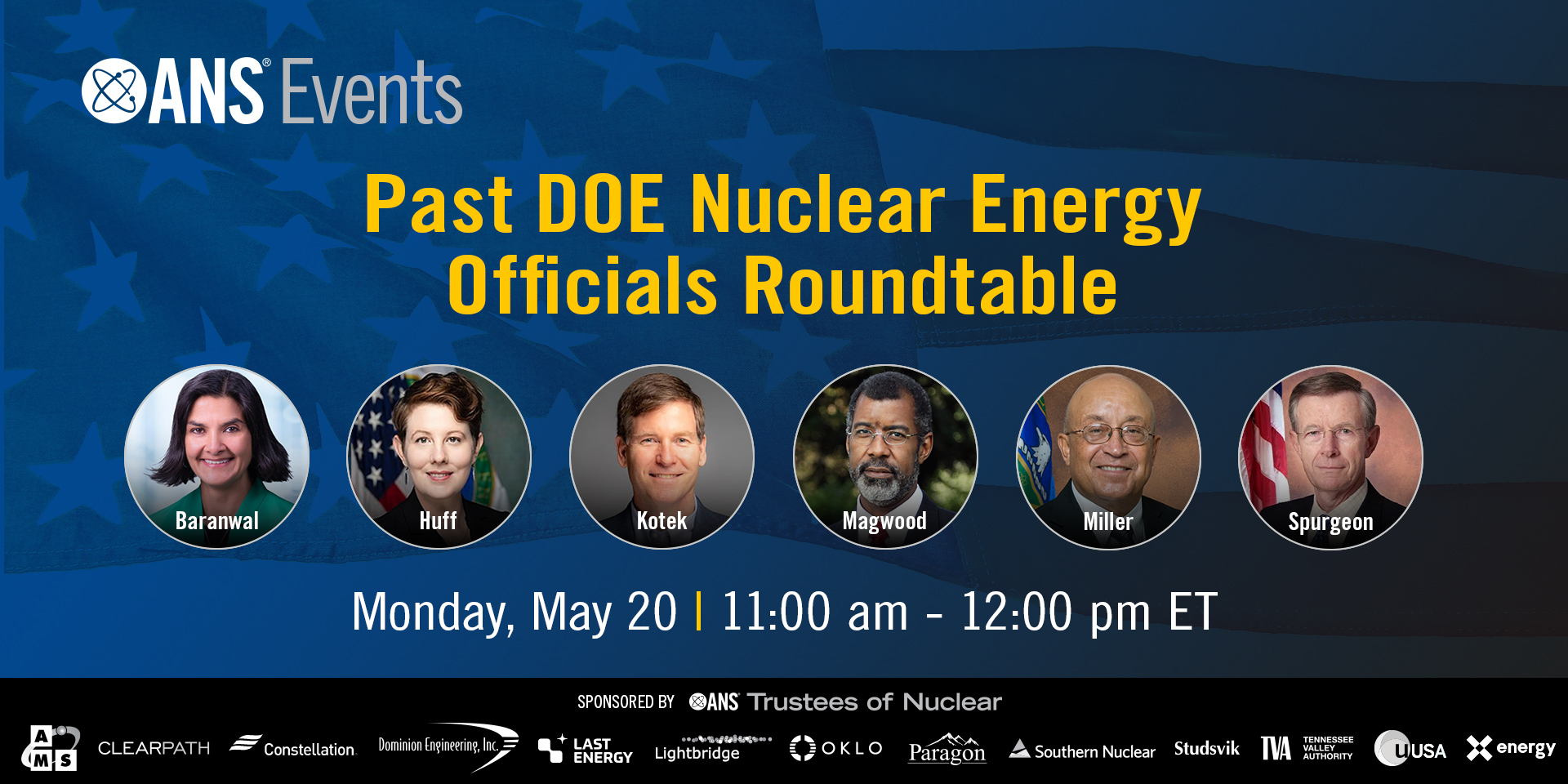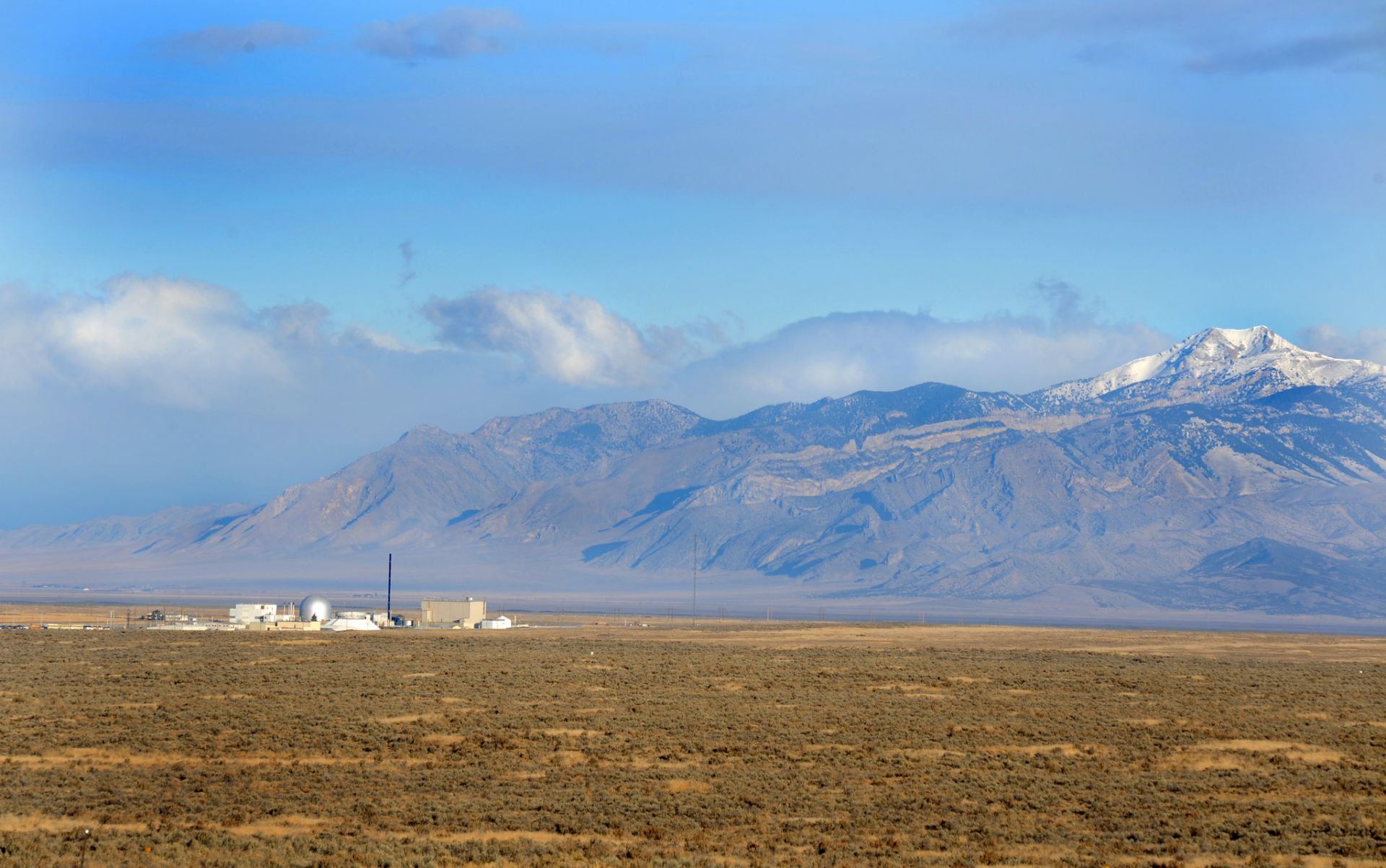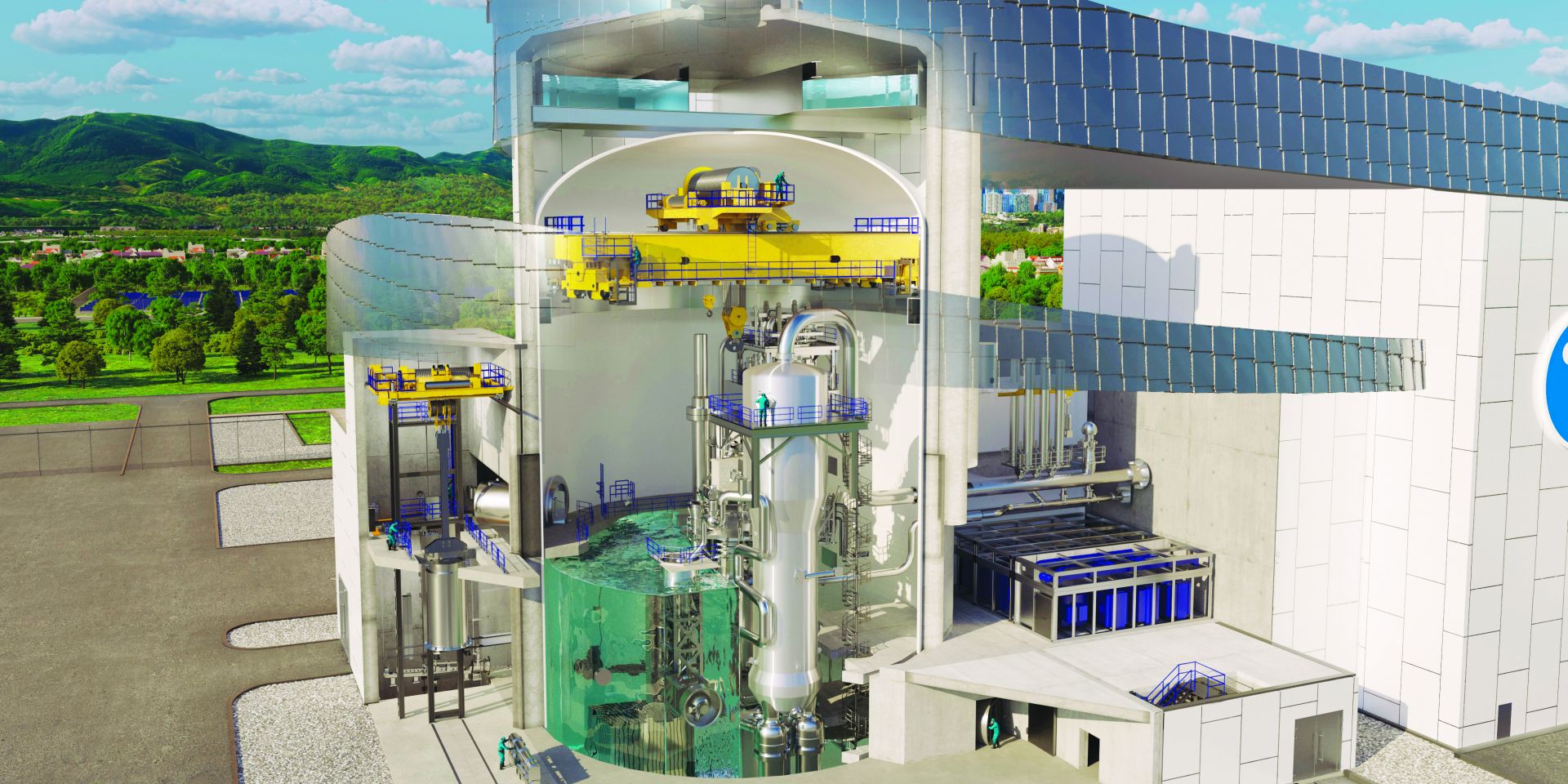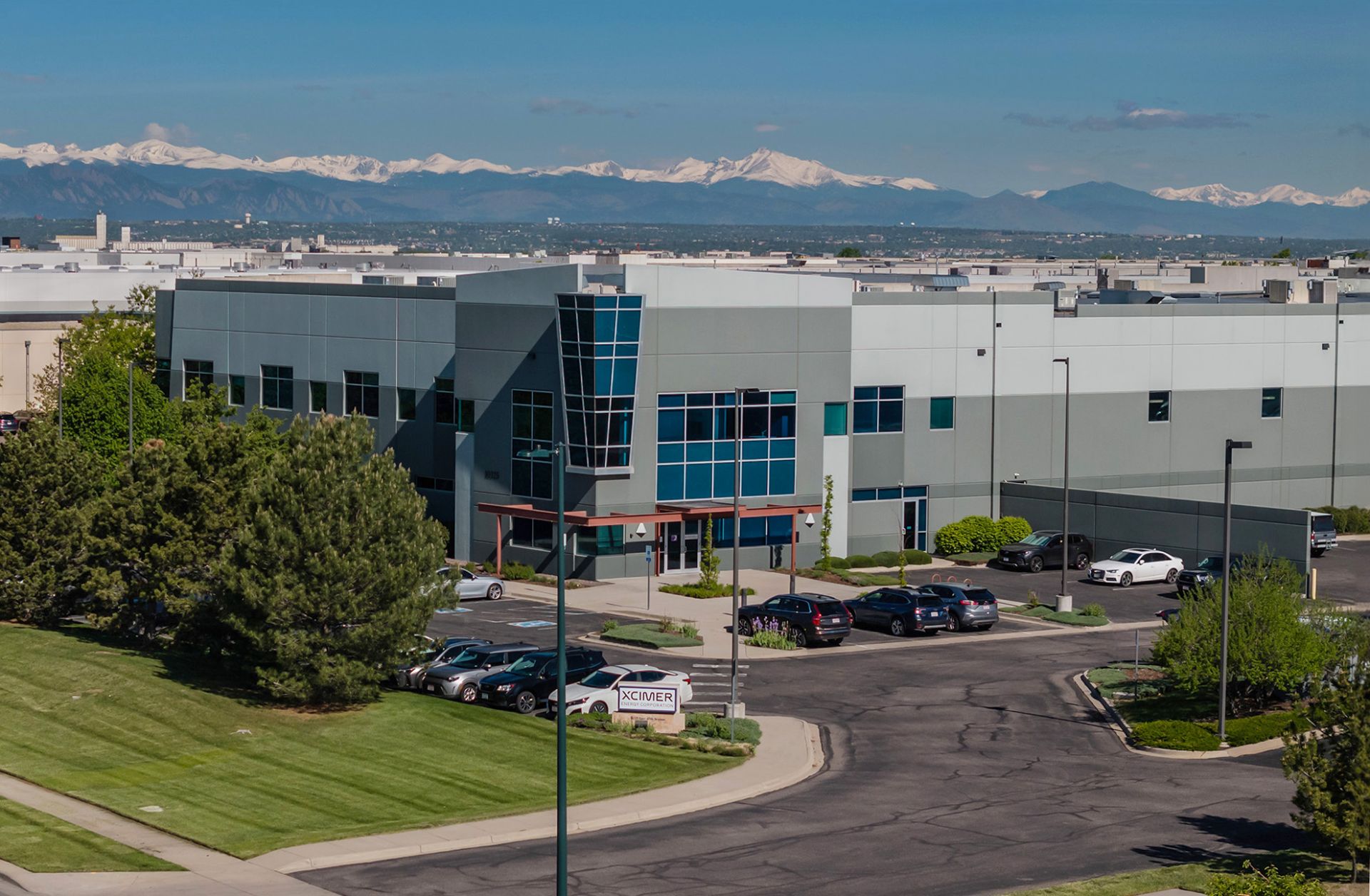Concept art showing the delivery of Radiant’s Kaleidos to the DOME test bed. (Image: Radiant Industries/Ryan Seper)
Radiant Industries announced on June 4 that the safety design strategy (SDS) for a test of its Kaleidos microreactor in the National Reactor Innovation Center’s DOME test bed at Idaho National Laboratory now has approval from the Department of Energy. Radiant hopes to test Kaleidos—a 1-MW high-temperature, gas-cooled reactor—by 2026 and then market portable commercial reactors to power remote locations and provide backup or primary power for critical applications in hospitals or for disaster relief.
Trends in percentages of the U.S. public favoring or opposing nuclear energy from 1983 to 2024. (Graphic: Bisconti Research)
Results of two new surveys have shed light on American public opinion regarding nuclear energy. The surveys, which were conducted with very different methods, offer generally encouraging news for the nuclear industry.
A student observes the ANS Visualizing Radiation Cloud Chamber at the PPPL Young Women’s Conference. (Photo: ANS Student Section/University of California–Irvine)
The American Nuclear Society Student Section at University of California–Irvine presented ANS STEM learning materials at the Princeton Plasma Physics Laboratory Young Women’s Conference in STEM. Members of the section were on hand at the May 17 conference, held at University of California–San Diego, with Geiger counters, an ANS Visualizing Radiation Cloud Chamber Kit, pellet cards, and more, courtesy of ANS STEM Programs.
Gov. Gavin Newsom visits Diablo Canyon in this 2023 photo (Source: Governor’s office)
In budget discussions conducted last week, the California legislature rejected a $400 million budget item to help keep the state’s sole remaining nuclear plant operational.
Diablo Canyon—owned by Pacific Gas & Electric—has been the subject of much debate in California. To meet grid demands during a record hot summer in 2022, Gov. Gavin Newsom had cut a deal to give $1.4 billion to support continued operations at the 2,200-MWe nuclear facility.
Release of sterile mosquitoes on Captiva Island in Lee County, Fla. (Photo: LCMCD)
Sterile mosquitoes are being used to reduce the population of insecticide-resistant Aedes aegypti mosquitoes in Fort Myers, Fla., which can spread viruses including dengue, yellow fever, Zika, and chikungunya.
The Atlas railcar carries a test load simulating a shipment of spent nuclear fuel. (Photo: DOE)
The Department of Energy’s Office of Nuclear Energy announced last week that the Association of American Railroads has certified its Atlas railcar system to operate on all major freight railroads in the United States.
Watch a video of the Atlas railcar development here.
Craig Piercy, ANS Executive Director/CEO (third from left), and ANS Board member Jess Gehin, associate laboratory director for nuclear science & technology at Idaho National Laboratory (second from left), join other officials at the ceremonial groundbreaking for TerraPower’s Natrium reactor demonstration project.
A ceremony in Wyoming yesterday marked the official start of construction of TerraPower’s planned Natrium reactor demonstration project.
While currently awaiting final review from the U.S. Nuclear Regulatory Commission, TerraPower is moving forward with nonnuclear construction work at a retired coal plant near Kemmerer, Wyo. The groundbreaking brought together TerraPower leaders, government officials, Natrium project partners, industry advocates, and community supporters.
The Materials and Fuels Complex at INL. (Photo: INL)
The Department of Energy will enter into lease negotiations with two solar energy developers for 400 megawatts of solar electricity generation within the Idaho National Laboratory site. Announced on June 5, the projects are the first proposed projects selected under the department’s Cleanup to Clean Energy initiative, an effort to repurpose parts of DOE-owned lands—portions of which were previously used in the nation’s nuclear weapons program—into sites of clean-energy generation, including for solar, geothermal, wind, and nuclear.
A cut-away view of Westinghouse’s AP300 reactor. (Image: Westinghouse)
Power generation from nuclear fission as a clean and stable source of electricity has secured the interest of policymakers and industry leaders around the globe. Last fall, the United States spearheaded a pledge at COP28 to get countries to agree to triple nuclear capacity worldwide, and recently the members of the Group of 7 (G7) nations that currently use nuclear power have reaffirmed their pledges to invest in that power source to cut carbon emissions.
As of this writing, U.S. policymakers are trying to make good on that promise by passing legislation to support nuclear power, funding the domestic fuel supply chain, and working to pass the ADVANCE Act. On top of the support from Washington, D.C., power-hungry industries like data centers and chemical engineering are looking to secure stable, carbon-free power directly from power plants.
Xcimer Energy’s headquarters in Denver, Colo. (Photo: Xcimer Energy)
Xcimer Energy announced June 4 that it has raised $100 million in Series A financing for a new facility in Denver, Colo., that will host a prototype laser system with “the world’s largest nonlinear optical pulse compression system.” As a private fusion developer, Xcimer wants to “extend the proven science of inertial fusion to industrial scale” with the help of that laser system and “key technologies and innovations from multiple fields.”
Image: Kyle Palmer and Michael Livingston/PPPL Communications Department
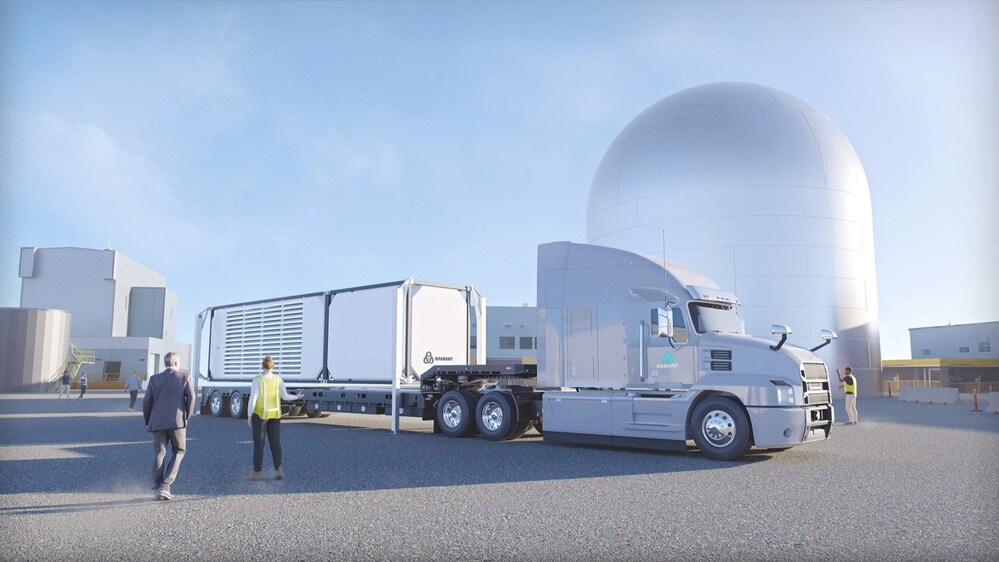


 2x1.jpg)



